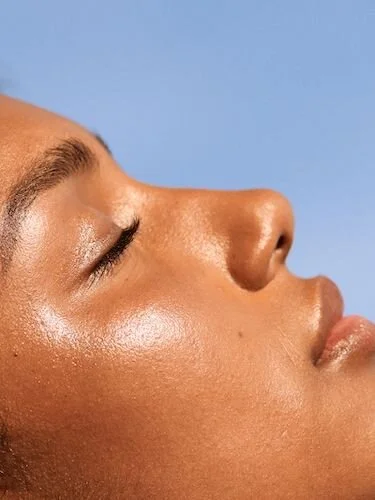Here Comes the Sun: Why Getting Your Daily Dose of Vitamin D is Important
From the time I was a young girl, everyone from my mother to my kindergarten teacher continuously stressed the importance of spending time outdoors in the fresh air and sunshine. Almost every single day, even in the rain and snow, I’d be sent outside with strict instructions not to come back until at least a half hour had passed. Most of you have probably experienced some variation of the same ritual. Getting regular exercise is important, this we all know, even if you don’t necessarily do it as often as you should. You may be wondering, “what benefits does natural sunlight have to offer that cannot be replicated by supplements and health treatments?” We live in a miracle age of pills and potions for every possible health concern. If you can name it, there’s probably a “cure” for it. But, keep in mind that, no matter how fancy or celebrity-endorsed it may be, no smoothie powder or glittery face mask can outshine the sun when it comes to vitamin D.
The best-known benefit of sunlight is its ability to boost the body’s vitamin D supply; most cases of vitamin D deficiency are due to lack of outdoor sun exposure. According to the National Institutes of Health, at least 1,000 different genes governing virtually every tissue in the body are now thought to be regulated by 1,25-dihydroxyvitamin D3 (1,25[OH]D), the active form of the vitamin, including several involved in calcium metabolism and neuromuscular and immune system functioning. Without sufficient vitamin D, bones will not form properly. While we know of several health problems caused by a lack of vitamin D, such as rickets in children, there has recently been a growing appreciation for vitamin D’s impact on bone health in adults. In August 2007, the Agency for Health Care Policy and Research published a compilation of 167 studies finding “fair evidence” of an association between higher vitamin D concentrations and either increased bone-mineral density or reduced falls in older people, which comes as a result of strengthened muscles as well as strengthened bones (Mead 2007).
Vitamin D has long been known to benefit physical health, but, in recent years, a significant connection has been discovered between sun exposure and mood, stemming from serotonin production. In a 2009 study by Environ Health, an association was found between decreased exposure to sunlight and increased probability of cognitive impairment. In other words, a lack of sunlight led to an increased chance of experiencing a mental health issue of some kind. Among depressed participants, a dose-response relationship was found between sunlight exposure and cognitive function, with lower levels of sunlight associated with an increase in the severity of the depression. Both seasonal and non-seasonal depression have been shown to be associated with environmental illumination. Abnormalities and regulation of both melatonin and serotonin have been found to vary according to sunlight and light therapy in bipolar and schizophrenic patients, as well as among those without psychiatric diagnoses (Kent, McClure, Crosson, Arnett, Wadley, Sathiakumar 2009)
“That’s all great,” you might be saying, “but what about skin cancer?” No one wants to worry about melanoma every time they step outside. For all its benefits, there's no getting around the fact that sunlight is hard on your skin. The short UVB wavelengths that cause sunburn can also damage DNA and suppress the skin's immune system. The longer, more penetrating UVA wavelengths may create highly reactive oxygen molecules capable of damaging skin cell membranes and the DNA inside. However, it’s not all dread and despair, and the relationship between sun exposure and skin cancer risk isn't as straightforward as many might think. Genes are a factor, of course: some protect, some promote. So is skin type: people with pale skin who sunburn easily and don't tan are more likely to get sun-related skin cancer. As for exposure, the "dose" and its timing are crucial. Several studies, including those done by Harvard Medical School and the National Institutes of Health, have suggested that suddenly getting a lot of sun, such as lying out on the beach all day without any protection, is more dangerous than moderate exposure over time – think 15 minutes before 10 am or after 2pm. So, when the weather’s nice, slather on some sunscreen, grab a hat and get outside (Harvard Medical Publishing 2017).
While vitamin D pills and infused products might give you a little boost in cell function, natural sunlight still reigns supreme. A few simple precautions can be taken to significantly reduce your risk of skin cancer or sunburn. Make 2021 the year of sunshine and get your daily dose, knowing you’re doing your body a world of good!
Au revoir et profite du soleil,
Matea xo
Works Cited:
Kent, S., McClure, L., Crosson, W., Arnett, D., Wadley, V., & Sathiakumar, N. (2009, July 28). Effect of sunlight exposure on cognitive function among depressed and non-depressed participants: A REGARDS cross-sectional study. Retrieved January 10, 2021, from https://www.ncbi.nlm.nih.gov/pmc/articles/PMC2728098/
Mead, M. (2008, April). Benefits of sunlight: A bright spot for human health. Retrieved January 10, 2021, from https://www.ncbi.nlm.nih.gov/pmc/articles/PMC2290997/
Publishing, H. (2017, January 20). Benefits of moderate sun exposure. Retrieved January 10, 2021, from https://www.health.harvard.edu/diseases-and-conditions/benefits-of-moderate-sun-exposure

